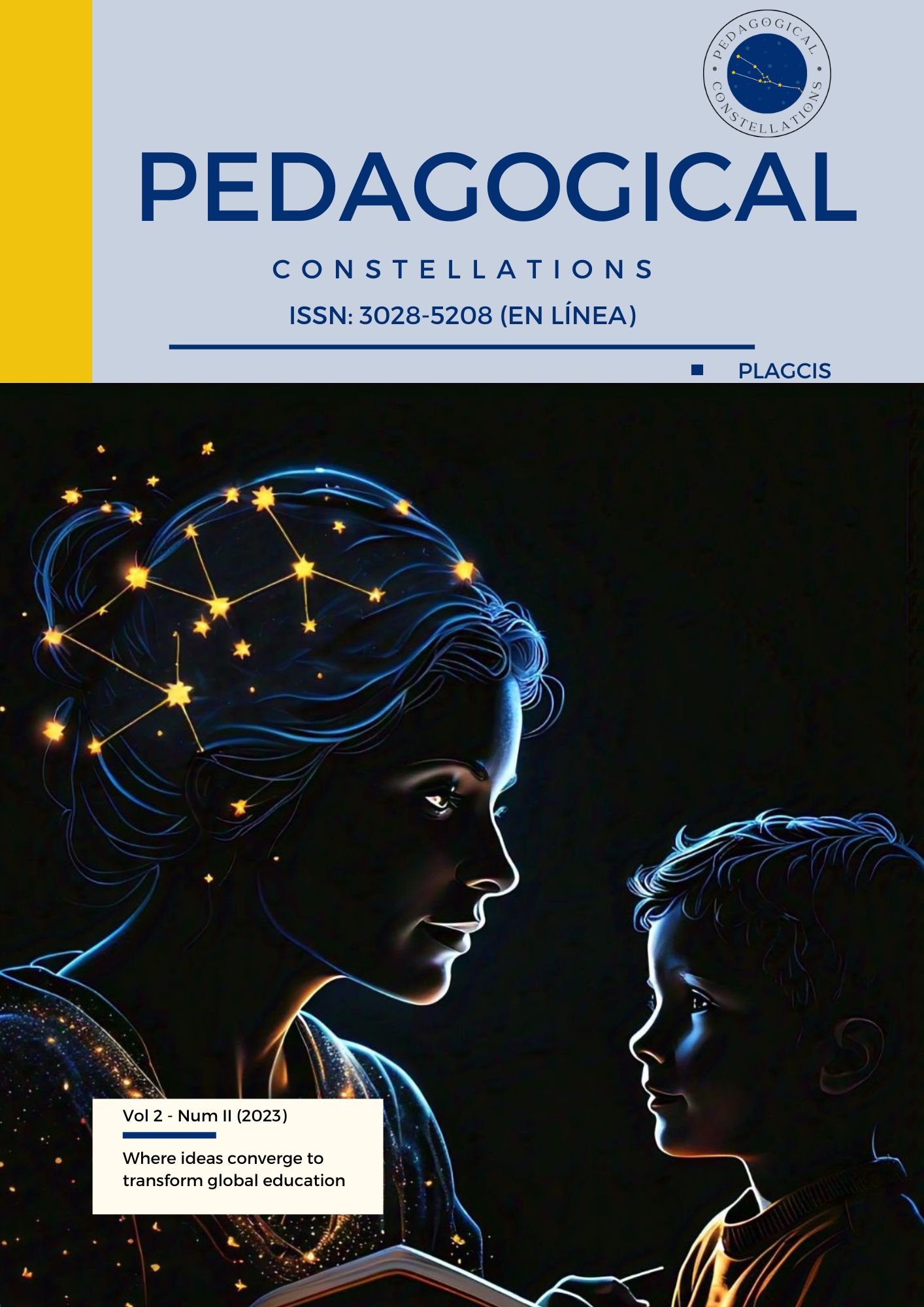Diagnosis of assertive communication among UNES teachers: Implications for educational quality
DOI:
https://doi.org/10.69821/constellations.v2i2.13Keywords:
Assertive communication, teachers, higher education, diagnosis, interpersonal relationshipsAbstract
This study has diagnosed the level of assertive communication among teachers at the Universidad Nacional Experimental de la Seguridad (UNES), Center for Training Cojedes, recognizing the importance of this skill for an effective educational environment. The main objective has been to evaluate teachers' communicative abilities in terms of expressing disagreements, admitting mistakes, and communicating personal desires. A quantitative approach with a non-experimental cross-sectional design has been employed, using the Multidimensional Assertiveness Scale (EMA) to collect data. The results have revealed significant weaknesses in assertive communication, with a high percentage of teachers frequently resorting to indirect communication and showing reluctance to admit mistakes. However, it has also been observed that some teachers possess strong skills in opinion expression and effective communication. These conclusions underscore the need to implement training programs that strengthen assertive communication, addressing the identified areas for improvement. This diagnosis has provided a critical foundation for future interventions aimed at promoting a more collaborative work environment and a higher quality educational setting at UNES.
Downloads
References
Alberti, R.E. y Emmons, M.L. (1978). (3ª ed.). Your perfect Right: A Guide to 236 Assertive Behavior. San Luis Obispo, California: Impact Publishers.
Arias, F. (2006). El Proyecto de Investigación. Caracas: Editorial Episteme.
Blegur, J., Haq, A., & Barida, M. (2023). Assertiveness as a New Strategy for Physical Education Students to Maintain Academic Performance. The Qualitative Report. https://doi.org/10.46743/2160-3715/2023.5659.
Critchfield, K., Henry, W., Castonguay, L., & Borkovec, T. (2007). Interpersonal process and outcome in variants of cognitive-behavioral psychotherapy.. Journal of clinical psychology, 63 1, 31-51 . https://doi.org/10.1002/JCLP.20329.
Estrada, M. (2015). Comunicación asertiva como estrategia pedagógica en las relaciones interpersonales entre docentes de Educación para el Trabajo. Universidad Central de Venezuela.
Flores, M., & Díaz-Loving, R. (2004). Manual de la Escala Multidimensional de Asertividad. México: Manual Moderno.
Garnica, K., & González, B. (2022). Programa para reducir los niveles de ansiedad y fortalecer las estrategias de afrontamiento basado en la terapia cognitivo-conductual dirigido al personal de bodega de la Dirección de Salud 03D01 Azogues Biblián Déleg. Periodo septiembre 2022 – febrero 2023. Disponible en: http://dspace.ups.edu.ec/handle/123456789/24603.
Gerber, L. (2023). From middle-class American women to French managers: The transatlantic trajectory of assertiveness training, c. 1950s-1980s.. History of psychology. https://doi.org/10.1037/hop0000237.
Hernández, R., Fernández, C., & Baptista, P. (2014). Metodología de la investigación (6ª ed.). México: McGraw-Hill.
Hurtado, J. (2012). Guía para una comprensión holística de la ciencia. Bogotá: CIEA-SYPAL .
Milal, A., & Kusumajanti, W. (2020). Assertive Speech Acts Performed by Teacher in EFL Classes., 11, 83-100. https://doi.org/10.15642/nobel.2020.11.1.83-100.
Morán, L., Quiñones, R., & Moyano, P. (2023). Importancia de la comunicación asertiva para mejorar el trabajo colaborativo en el contexto universitario. Universidad del Zulia.
Ogunyemi, K., & Olagbaju, O. (2020). Effects of Assertive and Aggressive Communication Styles on Students’ Self-Esteem and Achievement in English Language. Cross-cultural Communication, 16, 96-101. https://doi.org/10.3968/11594.
Pérez, M. (2014). Habilidades sociales en la resolución de conflictos en el aula de educación secundaria. TONOS Digital: Revista de Estudios Filológicos, (27), 1-12.
Quiñones, R., & Moyano, P. (2019). Promoción de la asertividad como estilo de comunicación en la administración de clases bajo el paradigma crítico reflexivo. Universidad del Zulia.
Samfira, E. (2020). Assertive communication skills in universities. Journal Plus Education, 26, 361-373. https://www.uav.ro/jour/index.php/jpe/article/download/1468/1522/4715
Scandroglio, B. (2016). Comunicación asertiva: una herramienta clave para el desempeño docente. Revista Electrónica Interuniversitaria de Formación del Profesorado, 19(2), 111-120.
Solé, F. (2018). La comunicación asertiva en el aula universitaria. Revista Electrónica de Investigación Educativa, 20(3), 105-115.
Speed, B., Goldstein, B., & Goldfried, M. (2018). Assertiveness Training: A Forgotten Evidence-Based Treatment. Clinical Psychology-science and Practice, 25. https://doi.org/10.1111/cpsp.12216.
Downloads
Published
Issue
Section
License
Copyright (c) 2023 Genesis Flores, Laura Lidilia Díaz González (Autor/a)

This work is licensed under a Creative Commons Attribution 4.0 International License.
Authors who publish with this journal agree to the following terms:
- Authors retain copyright and grant the journal right of first publication with the work simultaneously licensed under a Creative Commons Attribution License 4.0 that allows others to share the work with an acknowledgement of the work's authorship and initial publication in this journal.
- Authors are able to enter into separate, additional contractual arrangements for the non-exclusive distribution of the journal's published version of the work (e.g., post it to an institutional repository or publish it in a book), with an acknowledgement of its initial publication in this journal.
- Authors are permitted and encouraged to post their work online (e.g., in institutional repositories or on their website) prior to and during the submission process, as it can lead to productive exchanges, as well as earlier and greater citation of published work.




